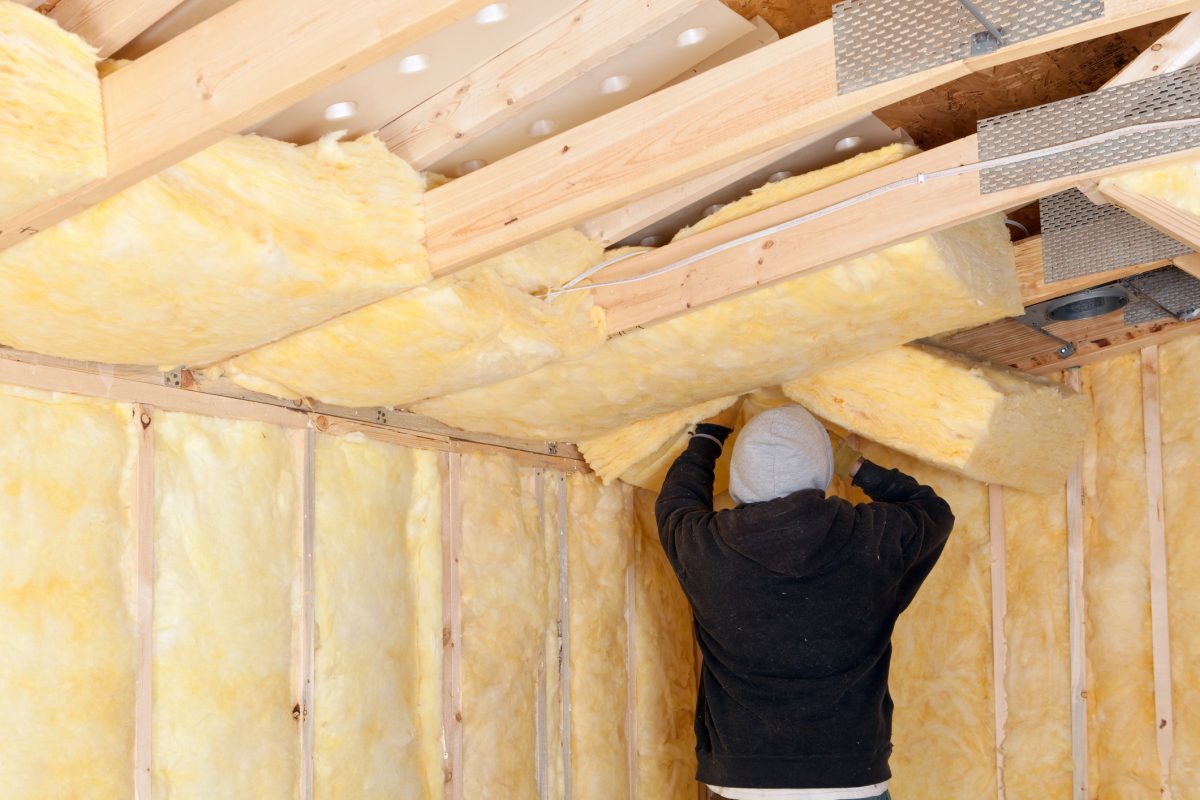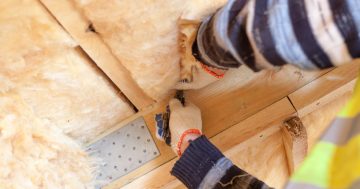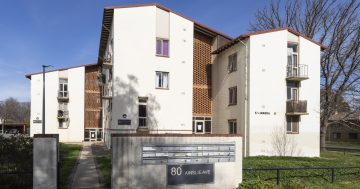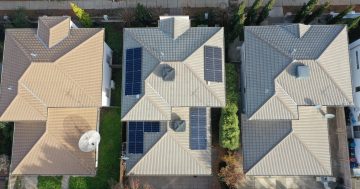
From April 2023, there will be new minimum requirements for ceiling insulation in ACT rental properties. Photo: File.
Ceiling insulation has been added to the list of items eligible for a $15,000 interest-free government loan as new minimum insulation requirements for ACT rental properties come into force.
Launched in July 2021 as part of the ACT Government’s plan to slash the Territory’s emissions to net zero by 2045, the Sustainable Household Scheme (SHS) is designed to help local households reduce costs by increasing energy efficiency.
Up to this point, households can apply for any amount between $2000 and $15,000 to spend on items like rooftop solar panels, household batteries, electric heating and cooling systems, hot water heat pumps, electric stove tops, electric cars and charging equipment.
You then have up to 10 years to pay it back with no interest, upfront costs or fees.
Around half the energy used in an average Canberra home is for heating and cooling, so the government has extended the scheme to include ceiling insulation.
Typically made of glass wool or recycled paper, ceiling insulation creates a barrier from the outside world to keep your home comfortable all year round.
The higher the insulation’s R-value (thermal resistance), the more it slows heat flow and the better it insulates. R5 is currently recommended for the ceiling and is the standard insulation level used in new builds across the ACT. The less effective R2 standard holds for existing homes.
Minister for Energy and Emissions Reduction Shane Rattenbury said the expansion of the scheme would help homeowners and rental property owners improve energy efficiency, increase thermal comfort, and reduce greenhouse gas emissions of ACT homes.
“Many renters in the ACT are living in housing that is expensive to heat or cool and doesn’t meet expectations around having a suitable home to help maintain health, comfort and happiness.”
From 1 April 2023, there will be new minimum standards for ACT rental properties to meet when it comes to ceiling insulation.
Owners will have until 30 November 2026 to upgrade homes with no ceiling insulation or insulation below an R-value of R2 to at least R5. Those homes with insulation rated R2 or above won’t need any upgrades as they already meet the minimum standard.
It’s estimated more than 60 per cent of rental properties already comply with the standard.
“This is an important reform that will mean more Canberrans have healthy homes that support improved wellbeing and reduce energy costs for heating and cooling,” Mr Rattenbury said.
From the start of the Sustainable Household Scheme to February this year, $110 million worth of loans have been settled, translating to more than 9000 Canberra households.
ACT Chief Minister Andrew Barr said interest in the scheme “shows how willing Canberrans are to make climate-conscious choices”.
“Practical changes, such as ceiling insulation, make a real difference when it comes to reducing household energy costs and taking climate action,” he said.
“The scheme contributes to the ACT achieving a sustainable future as we progress towards our target of net zero emissions by 2045.”
Earlier this year, the ACT Government committed an extra $50 million to the scheme on top of the $150 million funded in the 2020-21 Budget.
Visit the Everyday Climate Choices website for more information on the Sustainable Household Scheme, including how to apply for a loan. More information on minimum energy efficiency standards for rental homes can be found at www.justice.act.gov.au.





















